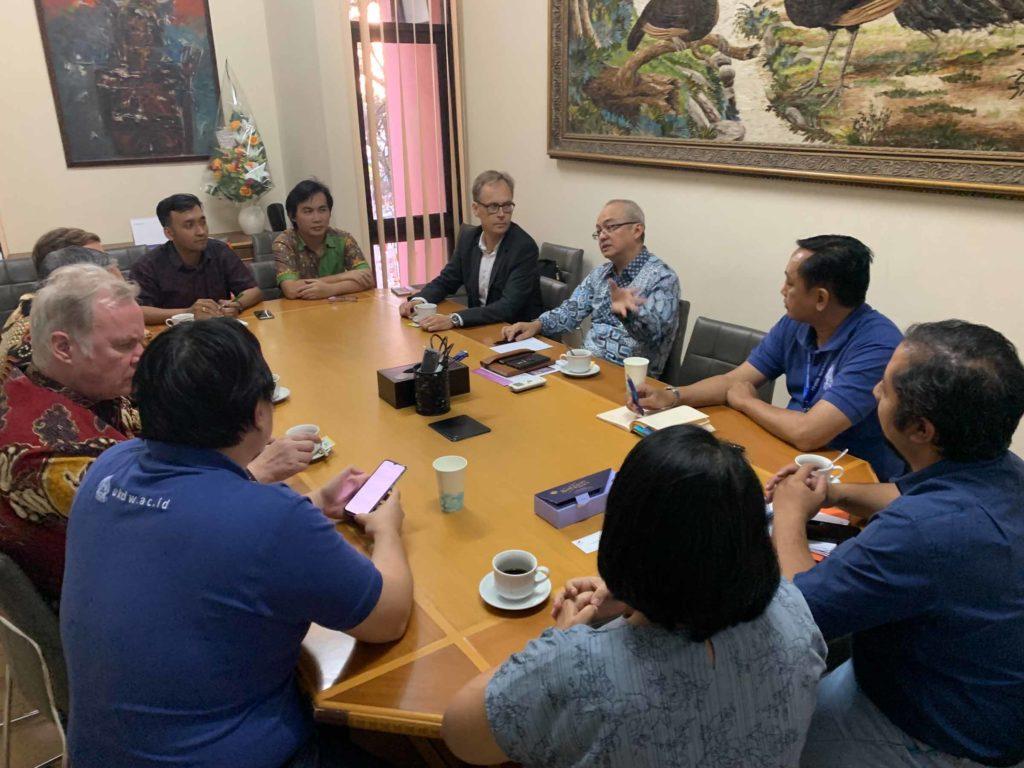MariaDB Server University Program
The demand for DBAs, developers and software engineers knowledgeable in MariaDB Server is high. The supply isn’t.
This is something we plan to fix, with the MariaDB Server University Program, for which we are now inviting universities to participate in, and users of MariaDB Server to sponsor.

Mind the Gap
Closing the gap between supply and demand is in the interest of several stakeholders:
Universities. Theory and practice fit together in a good database university course. MariaDB Server’s feature set enables the university to easily shed practical light on otherwise fairly theoretical concepts. MariaDB Server can by design be used for all aspects of database instruction, based on its feature set, its modular structure and above all its Open Source licensing, which enables hassle-free usage for students and university alike. No agreement is needed for that.
Students. Good students verify their understanding of theory by trying things out in practice. Playing around with MariaDB Server is easy. Installation and configuration are no-brainers, hacking together a replication cluster is fun. And with practical MariaDB Server knowledge, the student is attractive in the marketplace, as a sideline during studies and important qualification after studies.
Users of MariaDB. I see companies of large and small hunting for young employees at every database conference I go to. Migrating from proprietary databases is limited by the lack of skilled employees, and in hardly any industry but IT is it possible to grow into such a level of maturity before even graduating. With MariaDB Server University Program, students can focus on what is in demand, during both work and play.
IT suppliers. Not much different from users of database software, the developers of database software and infrastructure also have an insatiable appetite for skilled people to recruit. Their demand is not related to DBAs and application developers, as much as towards C developers who extend the functionality of MariaDB Server itself – coding tools, APIs, cloud functionality, connectors and various other extensions.
In Indonesia, the MariaDB Server University Program already has the first half-dozen signed on universities. During our visit in Yogyakarta on Java last month, we met with APTISI, a consortium of privately-held Indonesian universities. These universities train database developers by the hundreds of thousands. If the numbers seem high, don’t forget that Indonesia with 250m inhabitants is the world’s fourth most populous country.
How the University Program works
We invite universities from across the world to participate in the MariaDB Server University Program. Now is the time where participants get the most influence, as one can still influence the decisions the MariaDB Foundation needs to make, on licensing, formats, language, and processes.
Licensing: The training materials will be distributed free-of-charge under the GNU Free Documentation Licence. The license gives everyone the freedom to copy and redistribute the training materials, with or without modifying, either commercially or non-commercially. It also ensures that authors and publishers get credit for their work without being held responsible for any modifications made by others. This means that a university participating in the program needs to get used to the thought that we as developers of MariaDB Server have always needed to take for granted: That anyone can be a user, that we cannot even keep track of who is a user, and that a classic sense of “control” is simply lost. Later on, one may be rewarded, in the form of reputation, influence, and a growing network of connections.
Format: Existing database courses form the basis of all material submitted to MariaDB Foundation. That can historically have be written in any format, although we for the sake of simplicity ask for PDF submissions of current material as input to the evaluation stage. Going forward, MariaDB Server University Program participants will probably understand that the appropriate choice is an open, character based format, which can be subjected to Github like simple source control. Candidates are DocBook, markdown and wiki markup. MariaDB Foundation is asking for input, to be able to make a good decision that balances ease of use with functionality needed for creating both slide-like and book-like output.
Language: Our program will be multilingual. The IT industry may speak English, but basic database classes are often given in Bahasa Indonesia, French, Chinese, Spanish, Japanese, or German, or whatever the native language of the university is. We know this, we support this. That said, we support English language material best, as all our employees read and write it. German and French are mastered by some of our employees, and thus, we can certainly do quality assurance on a more than basic level. Languages which are based on some type of ISO Latin can be better checked visually even if none of us are fluent in them, and we don’t expect to neglect CJK-based languages, although our support of them will be limited.
Processes: We will establish a Github account for the MariaDB Server University Program, as well as a proper communication infrastructure. Expect us to learn by doing. The initial step is for participants to register through submitting an email to university@mariadb.org. We expect participants to explain their general interest, and to share materials in PDF format, for evaluation and planning purposes only. We look for a concise description of the structure of current database courses. And, we would like participants to explain their position when it comes to language: What is done in English, if anything? What is done in which other languages? If PDF materials exist in both English and non-English, do share it in both.
That’s it! Feel free to read our press release for Indonesia.
Call to action: Universities and Users!
But most importantly, if you’re interested for your university to participate, email us at university@mariadb.org.
And if you are a user of MariaDB Server who wants to help us close the gap by supporting the initiative financially, email us at foundation@mariadb.org.